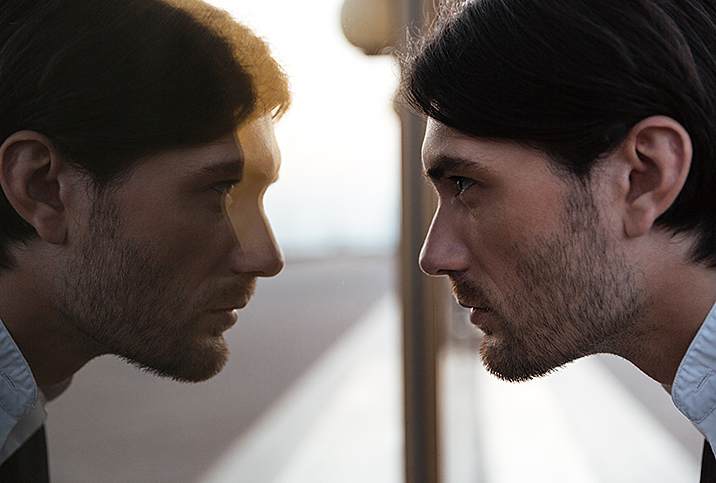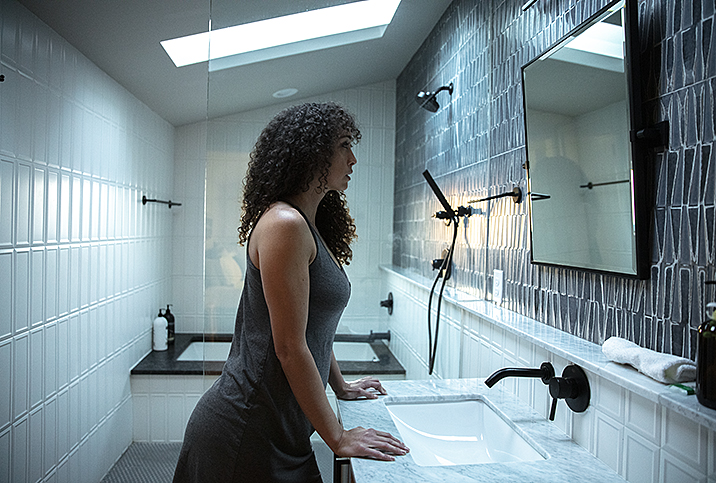Social Media Scrolling May Make You Dysmorphic

You started out following your friends on Instagram. You swapped gossip, liked their pictures, posted photos of your own, and it was fun to share.
So when did it become so competitive?
Take a look at your social media feeds. Do your friends now take a backseat to beautiful celebrities with their flawless bodies? After all, those otherwise untouchable stars all have Instagram accounts, too.
When our social media feeds are full of unattainable celebrities who have such perfect posts, it's easy to feel we should emulate and compete. After all, we're seeing actors, models and influencers do the same things as us: eat brunch, lounge in the house, go for walks. Why can't we look the way they do when we do the same things?
What is selfie dysmorphia?
This direct comparison between yourself and social media sensations can lead to overanalysis and overemphasis of our appearance, as we see in them everything we are not. And it only gets worse as we continue to open our apps again and again throughout the day, repeatedly exposing ourselves to the objects of comparison that undermine our self-esteem. If the cycle progresses far enough, you may begin to feel dysmorphic.
Dysmorphia is a serious mental health condition characterized by our obsession with what we see as a physical flaw that may or may not be something noticeable to others. If you have dysmorphia, you may spend a lot of time trying to fix or hide your perceived flaws, obsess over your image in the mirror or avoiding mirrors altogether, shrink from social gatherings, continually ask people if you look okay and not really believe people when they compliment you. All of these behaviors can cause you to feel anxious or depressed.
If that all sounds familiar, it could be that you're coming down with a case of selfie dysmorphia, or Snapchat dysmorphia as it was first recognized among ardent Snapchat users.
Social media doesn't help
It's not just comparing ourselves to others that can bring on selfie dysmorphia. Part of the problem comes from altering how we perceive ourselves, as well.
Typically, we only want to post our hottest, cutest or most enviable on social media, leading many to use filters and photo editing apps to eliminate what we see as flaws. Once we get accustomed to posting perfection, we may become self-conscious about our real features and feel uncomfortable with sharing our unfiltered selves—on social media and beyond.
Plastic surgeons have warned that young people, especially women, have asked for changes to their appearance that are simply unrealistic based on their filtered images posted on Instagram. Indeed, 74 percent of members of the American Academy of Facial Plastic and Reconstructive Surgery reported in 2020 that "looking better in their selfies" was the underlying factor in their patients' requests for cosmetic procedures. In 2018, just 15 percent of its members reported the same thing.
What you can do
No one's asking you to quit social media, but try to think about those first weeks and months using your favorite apps. Fun, right? Let's try to get back there by:
- Start unfollowing celebrities who obviously have teams of people writing their posts for them and who radically filter their images.
- Focus on the accounts of your good friends and family, especially those that reinforce positivity and post realistic photos.
- Work on your FOMO. Try turning off your notifications for periods of time during the day so you can focus on what's actually going on around you instead of what you might be missing out on.
- Stop using social media as a reward. Everyone has days when they're feeling down, and that's OK. But perhaps decide not to indulge in feed-scrolling in an attempt to boost your mood, as social comparisons with posts and pictures may make you feel worse.
- Start thinking about social media more like a reality show, where you know it's heavily produced, scripted and about as far from reality as you can get.
- Don't use social media as a boredom-buster. There are a million better things to do: Call a friend, take a walk, read a book, write in your journal—even watching a reality show is better than trying to be in one!
- Track the time you spend on social media. You don't have to change your social media habits, but you may be amazed at how much time you spend swiping through the day.
It may sound drastic but taking a break—even a few hours every day—from social media can help you reevaluate your self-worth and remind yourself you're more than your appearance.


















